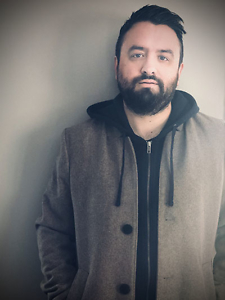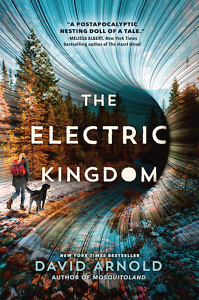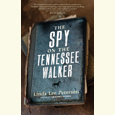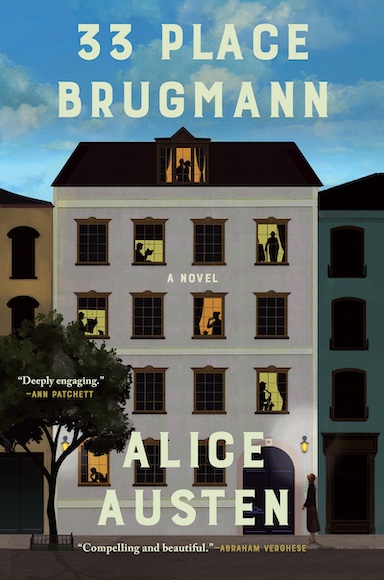Decency at the End of the World
David Arnold’s The Electric Kingdom finds beauty in the darkness
David Arnold, a former Nashville resident and the author of the acclaimed YA novels Mosquitoland, The Strange Fascinations of Noah Hypnotik, and Kids of Appetite, returns with The Electric Kingdom, an achingly beautiful and timely book that transcends simple classification.

Set in post-apocalyptic New England, The Electric Kingdom follows 18-year-old Nico, who lives in an abandoned farmhouse with her dog, Harry, and her ailing father. Their home is a place of relative safety and comfort, but the dangers of the outside world constantly haunt them. Killer Flu Flies, which are actually modified honey bees, stalk the few humans who remain, seeking either to swarm the survivors or to pass on their deadly flu. As Nico’s father grows sicker, he tells his daughter that she must leave with Harry and find a secret portal.
While initially resistant, Nico does as her father asks, and she sets out on a journey in which she meets a cast of other young survivors who, like her, seek something beyond mere existence in their increasingly dark and lonely world.
Arnold structures The Electric Kingdom around three characters’ experiences. It’s certainly Nico’s journey that anchors the book — her quest on (and off) the road is what gives the novel its immediate agency — but the two other perspectives, from the 12-year-old, wise-beyond-his-years Kit and a mysterious, mostly omniscient character known as Deliverer, contribute to the novel’s vast emotional and philosophical depth.
Kit, who grows up in a deserted movie theater and absorbs information galore from the books he reads, is a “Knower of Things.” He offers commentary on the importance of art and history, and he also provides the narrative with a necessary lightness. Upon meeting Nico, he asks her, “Have you ever had a really good tomato?” He soon follows that up with another question just as curiously innocent: “Did you know octopuses have nine brains?” It’s hard not to smile as he emits constant wonder in a place that seems so absent of it. Deliverer is a mysterious character whose voice offers philosophical commentary on what it means to live — and in Deliverer’s case, to live over and over again.
 Arnold wisely balances the novel’s complex narrative with contemplative, lyrical prose. The writing here is so accessible and inviting that it’s easy to get wrapped in the world he gives us — even when there’s time travel, secret portals, and mysterious identities.
Arnold wisely balances the novel’s complex narrative with contemplative, lyrical prose. The writing here is so accessible and inviting that it’s easy to get wrapped in the world he gives us — even when there’s time travel, secret portals, and mysterious identities.
The Electric Kingdom certainly has its share of bleakness. There is heartache, suffering, and death, but the novel manages to balance this pain with kindness and love. Instead of presenting humanity’s remaining survivors as ruthless, Nico, Kit, and the others display selflessness. For example, when tempted with taking over a shelter belonging to a boy no one knows or trusts, Nico, in one of the novel’s most moving moments, adamantly tells her friends, “That kid lives here. We’re not holding his house hostage.” Her words movingly remind us that decency still has a place at the end of the world.
Arnold’s novel will undoubtedly spark conversations among its readers, but one topic that will be hard to avoid discussing is how beauty exists even in the face of absolute darkness. The Electric Kingdom insists this as fact steadily, but it’s near the end of Nico’s journey when the emotional heft of such a belief shines the brightest: “The day passed, and behind them the sun began its descent. Nico turned to catch a glimpse of its slow death in the west, and she wondered if a sunset was inherently beautiful, or if its beauty was found in this: that it would soon come back to life.”

Bradley Sides‘ debut collection of short stories, Those Fantastic Lives, is forthcoming from City of Light Publishing in 2021. On most days, he can be found teaching creative writing and English in southern Tennessee.


